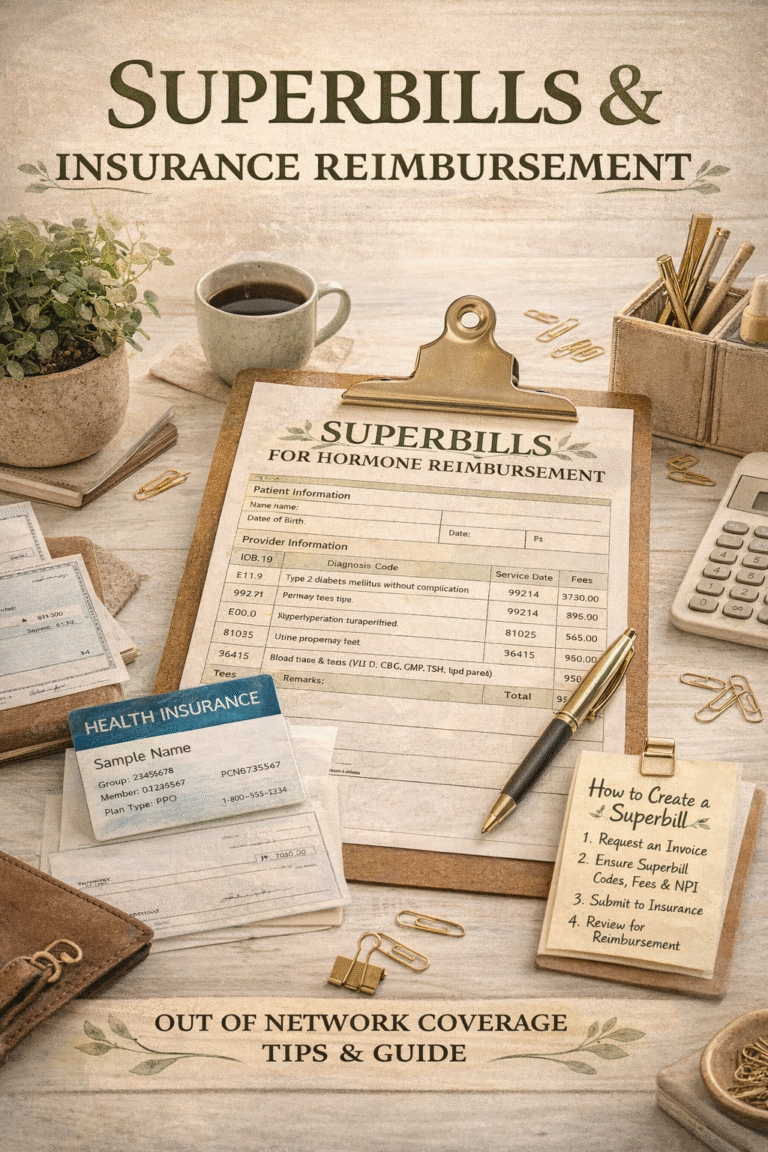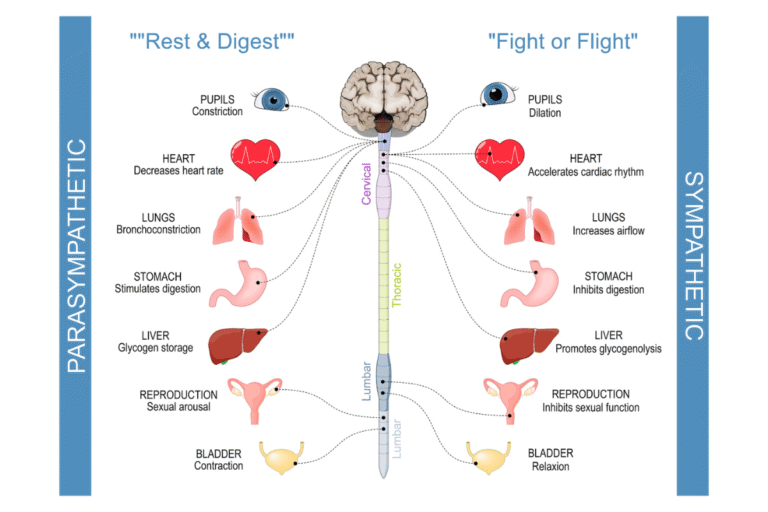
One of the most common struggles I see with my clients and patients—especially women in their 40s and 50s—is not the diagnosis, the lab results, or even the treatment plan. It’s the follow-through.
They know what to do: eat to balance blood sugar, reduce inflammation, move their bodies, go to bed on time, take their supplements. But life gets busy. Stress builds. And suddenly they find themselves skipping workouts, emotionally eating, feeling moody, and beating themselves up for not being “perfect.”
Sound familiar?
This resistance to consistency—and the pressure to do everything perfectly—is a pattern I see over and over. And it’s not a willpower issue. It’s not laziness. It’s a deeper psychological pattern that deserves compassion and understanding.
Let’s talk about why this happens, and what you can do to finally break the cycle and create sustainable, lifelong change.
Case Study: Meet “Emily”
Take Emily (name changed for privacy), a woman in her late 40s who came to Antigravity Wellness overwhelmed, exhausted, and stuck in a vicious all-or-nothing mindset.
She had been eating less than 1,200 calories a day for years—terrified to eat more because she was convinced she would gain weight. “If I eat more than that, it’s over,” she said. “I just feel like I lose control so easily, so I try to keep it really strict.” But despite her discipline, she wasn’t losing weight. In fact, she felt increasingly fatigued, irritable, cold, and bloated. Her workouts had stalled, her sleep was disrupted, and her self-worth was tied entirely to the number on the scale.
“I know I’m supposed to lift weights and eat more,” she said, “but I just can’t trust it. What if I blow up?”
Emily’s story is not unique. It’s a pattern we see in many women who have been conditioned to believe that thinness equals worth—and that if they’re not doing everything perfectly, they’re failing.
Why Women Struggle with Follow-Through in Midlife
1. Perfectionism and All-or-Nothing Thinking
Many women internalize the belief that if they can’t do something perfectly, it’s not worth doing at all. This often starts in childhood and is reinforced by societal expectations of women being “good,” “disciplined,” and “put together.”
Research: Frost & Marten’s Multidimensional Perfectionism Scale identifies “concern over mistakes” and “doubt about actions” as core traits of perfectionism. These are especially common in high-achieving women (Frost et al., 1990).
When a woman in her 40s trying to rebalance hormones misses one workout or indulges in a sugary treat, she may spiral into a “screw it” mentality—what some call the what-the-hell effect (Polivy & Herman, 1985).
2. Ego Depletion and Decision Fatigue
We make thousands of decisions daily. Hormonal fluctuations, sleep disruption, and chronic stress all wear down our cognitive energy, making healthy decisions harder.
Research: Baumeister et al. (1998) showed that decision fatigue leads to impulsive choices and lowered self-control.
3. Delay Discounting: The Brain Wants Rewards Now
Your brain is wired to prioritize short-term pleasure (dopamine hits) over long-term rewards like “better health” or “increased muscle mass.”
Research: Bickel et al. (2014) found that individuals with higher rates of delay discounting had more difficulty adhering to health goals.
This is why the immediate comfort of wine or chips often trumps the distant goal of “lower inflammation.”
4. Unmet Emotional Needs Masquerading as Bad Habits
That nightly glass of wine? It may not be about alcohol—it may be about wanting a break. That bag of chips? Comfort. That skipped workout? Exhaustion and overwhelm.
Bottom line: Most “bad habits” are unmet needs in disguise.
When Perfectionism Becomes Harmful: Warning Signs to Watch For
While resistance, perfectionism, and inconsistent follow-through are common and often manageable with support and lifestyle strategies, there are times when these patterns go deeper—and signal something more serious.
If you’re noticing any of the following red flags, it may be time to seek professional mental health support:
Warning Signs That May Indicate an Underlying Mental Health Concern:
- Severe food restriction or obsessive calorie counting
- Fear of gaining weight that interferes with daily functioning
- Binge eating followed by intense guilt, shame, or attempts to “make up for it”
- Compulsive over-exercising
- Frequent body-checking or mirror-checking
- Social withdrawal or avoiding events due to food or body image fears
- Mood swings, panic attacks, or prolonged depression or anxiety
- Thoughts of self-harm, worthlessness, or hopelessness
These may point to disordered eating patterns, body dysmorphia, or other mental health challenges such as anxiety, depression, or trauma responses.
Case Study Continued: Emily’s Breakthrough
Over time, working together at Antigravity Wellness, we uncovered that Emily’s chronic fatigue and weight loss resistance weren’t from a lack of willpower—but from serious hormonal and metabolic dysfunction. She had poor sleep architecture, suboptimal thyroid function, and elevated stress hormones that were keeping her stuck.
We also identified that some of her beliefs around food, control, and self-worth were rooted in deeper emotional pain—experiences that required more focused support than we could offer alone. At Antigravity Wellness, we don’t provide full mental health counseling, but we do prioritize mental wellness as a crucial part of healing. In Emily’s case, we referred her to a licensed therapist to help her work through long-standing trauma and harmful coping patterns.
She began meeting with her therapist weekly and committed to several months of emotional processing and learning new tools for emotional regulation. Over time, she was able to replace her old, rigid habits with more nurturing, sustainable coping mechanisms.
Meanwhile, we focused on the physical aspects of her healing. We helped her refocus her energy away from the scale and onto strength-building, outdoor walks to reset her nervous system, and reconnecting with the people and passions that brought her joy—her friends, family, and herself.
Today, Emily continues to see her therapist for check-ins as part of her ongoing self-care routine—just like she would with a personal trainer or healthcare provider. She prioritizes her mental well-being alongside her physical health. Her energy has improved, she’s sleeping better, and her body composition has shifted in a way that reflects her strength—not just a number.
The scale may have gone up, but so did her muscle mass, her confidence, and her peace of mind. “I feel strong. I feel capable. I feel like I’ve come home to myself,” she told us.
Mental Health Is Physical Health
You are not weak or broken for needing help. Many women in midlife carry generational trauma, societal conditioning, and years of unprocessed emotional pain—all of which impact hormone balance, immune function, and metabolic health. Healing is not just about what you eat or how you move—it’s about how you feel, how you cope, and how you care for your inner world.
It’s okay to need a team.
Working with a therapist, trauma-informed coach, or mental health provider alongside your hormone or wellness practitioner can be life-changing. At Antigravity Wellness, we welcome and encourage collaboration with mental health professionals.
If You Are in Crisis or Need Immediate Support
If you are experiencing suicidal thoughts, urges to harm yourself, or a mental health crisis, please reach out for immediate help.
Nationwide Suicide & Crisis Lifeline (U.S.):
Dial 988 or visit 988lifeline.org
Free. Confidential. 24/7.
You deserve support, safety, and healing. You’re not alone.
Resources:
- National Eating Disorders Association (NEDA): nationaleatingdisorders.org
- Psychology Today Therapist Finder: psychologytoday.com
- Trauma-Informed Directory: traumatherapistnetwork.com
Tactics That Actually Work
1. Micro-Wins: Shrink the Goal
If your brain is resisting your to-do list, shrink it.
Instead of “work out for 45 minutes,” try: Put on my workout clothes and do 5 minutes of movement.
Small wins create dopamine feedback loops that reinforce consistency.
Tip: James Clear’s Atomic Habits highlights this concept of habit stacking and reducing friction.
2. Reward Pairing
Pair something you enjoy with something you resist.
- Watch your favorite show only while stretching.
- Listen to a juicy podcast only when you’re meal prepping.
This makes the habit something you look forward to.
3. Track Emotional Wins, Not Just Scale Wins
The number on the scale is not the goal—it’s just a data point.
Start tracking wins like:
- I had energy all day.
- I didn’t snap at my kids.
- I felt sexy in my clothes.
These emotional wins are the real motivators.
4. Reframe Setbacks as Signals
Instead of “I failed,” try:
- “What was I needing in that moment?”
- “How can I meet that need in a way that aligns with my long-term goals?”
Journal Prompts for Self-Reflection
Here are some prompts to help you deepen your understanding of your patterns:
- What does my “resistant side” want me to understand?
- What need was I trying to meet the last time I skipped a habit or binged on something?
- What are my perfectionist rules—and what would it look like to let them go?
- What version of me am I becoming, one tiny action at a time?
- If I were to give myself grace and structure, what would that look like?
Pro Tip: You can paste your journal entries into ChatGPT and ask for help reflecting, clarifying, or reframing them. Sometimes the best way to hear your truth is to talk it through—even with a tool.
Small Steps, Big Wins: One New Habit Per Week
Sustainable change doesn’t happen overnight—it happens with consistency over intensity.
Try this:
- Choose one new habit each week.
- Keep it so small you can’t fail (e.g., a daily glass of water, 10-minute walk, or one veggie per meal).
- Build momentum. Let your wins stack.
This isn’t a 30-day challenge. This is your life. Your body. Your rebirth.
Final Thoughts
The resistance, the perfectionism, the numbing out—none of it means you’re broken.
It means you’re human.
The good news? With compassion, structure, and some neuroscience-backed strategies, you can retrain your brain to make decisions that align with your goals—and honor your needs.
You can create a version of you that feels strong, clear, and centered—not just someday, but now.
How We Support You at Antigravity Wellness
At Antigravity Wellness, we take a holistic and compassionate approach to women’s hormone balancing and healing. We know that success doesn’t look the same for everyone—and it shouldn’t. That’s why we work with you to set realistic, personalized goals that align with your lifestyle, your needs, and your vision for your health.
We start where you are—not where you think you “should” be. Together, we build a plan that’s sustainable, empowering, and uniquely yours.
This is a collaborative effort—you are always in charge of your care. We’re here to guide, educate, support, and walk alongside you as you reclaim your energy, balance, and confidence.
Ready to take the first step?
Book your Brief Initial Consult with Dr. Nicole Smith to explore what’s going on with your symptoms, what’s been working (and what hasn’t), and to create a plan to help you finally feel your best.
Further Reading:
- Baumeister, R. F., et al. (1998). Ego Depletion: Is the Active Self a Limited Resource?
- Bickel, W. K., et al. (2014). Delay discounting and health behaviors.
- Frost, R. O., et al. (1990). The dimensions of perfectionism.
- Polivy, J., & Herman, C. P. (1985). Dieting and binge eating: A causal analysis.




